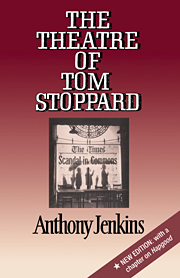Summary
… The particle world is the dream world of the intelligence officer. An electron can be here or there at the same moment. … It defeats surveillance because when you know what it's doing you can't be certain where it is, and when you know where it is you can't be certain what it's doing: Heisenberg's uncertainty principle; …
Despite its apparent solidity, each particle of Stoppard's latest play “can be here or there at the same moment”. What starts as a spy story becomes, as you look at it, a metaphor that illustrates the tricksy dreamworld of spies and counter-spies, “sleepers” and “joes”; look longer, and Hapgood depicts the unpredictabilities in every human being. The naturalistic dialogue also has its quantum leaps when words, like many of the characters who speak them, become twins, puns, “double agents”. As Clive James noticed, years ago, “the appropriate analogies to Stoppard's vision lie just as much in modern physics as in modern philosophy”.
In its elegant ingenuity, Hapgood is like a ‘thought experiment’ designed to probe the randomness behind our perceived realities. The first scene, for example, introduces us subversively to Heisenberg's uncertainty principle. Once the houselights go down, a street map projected onto three hexagonal panels above the empty stage allows us to plot the route of a Russian agent whose Peugeot (red lights on the map) moves through the London streets and stops at a municipal swimming-bath.
- Type
- Chapter
- Information
- The Theatre of Tom Stoppard , pp. 183 - 192Publisher: Cambridge University PressPrint publication year: 1989



